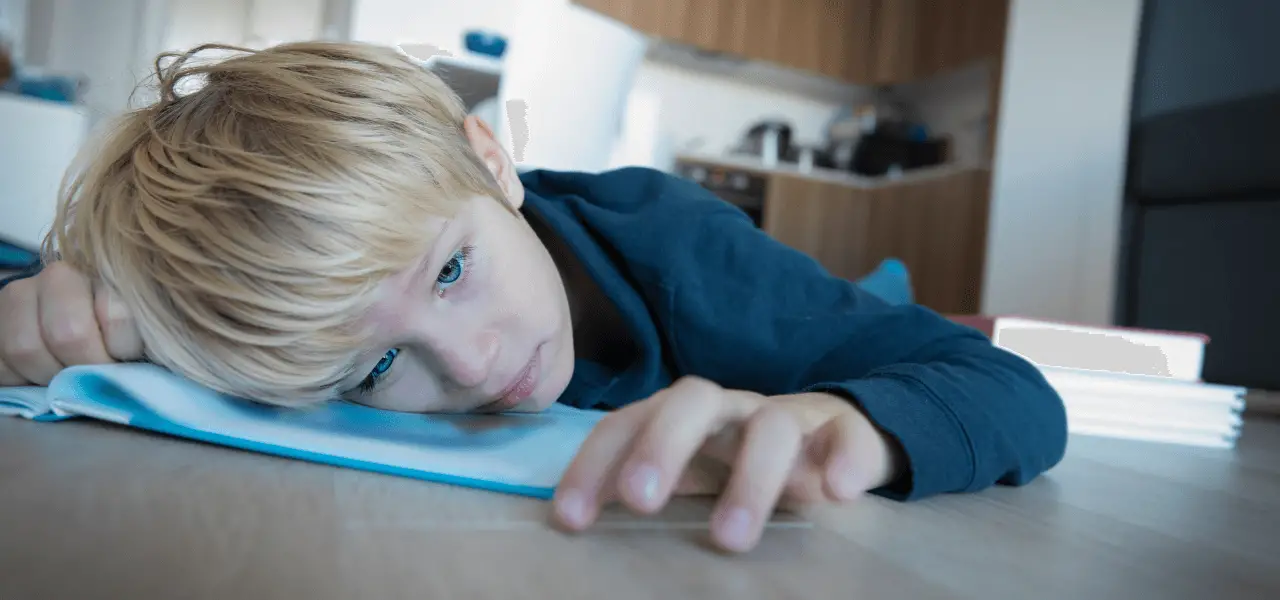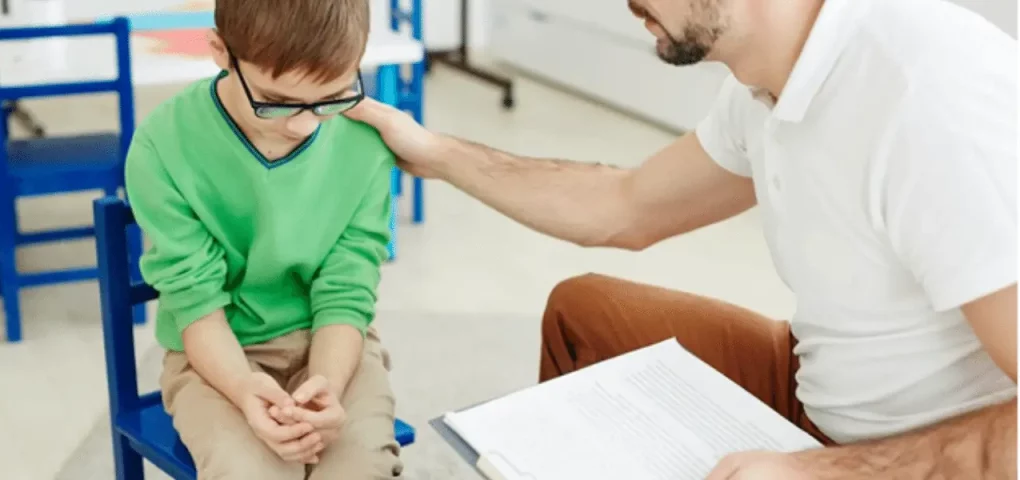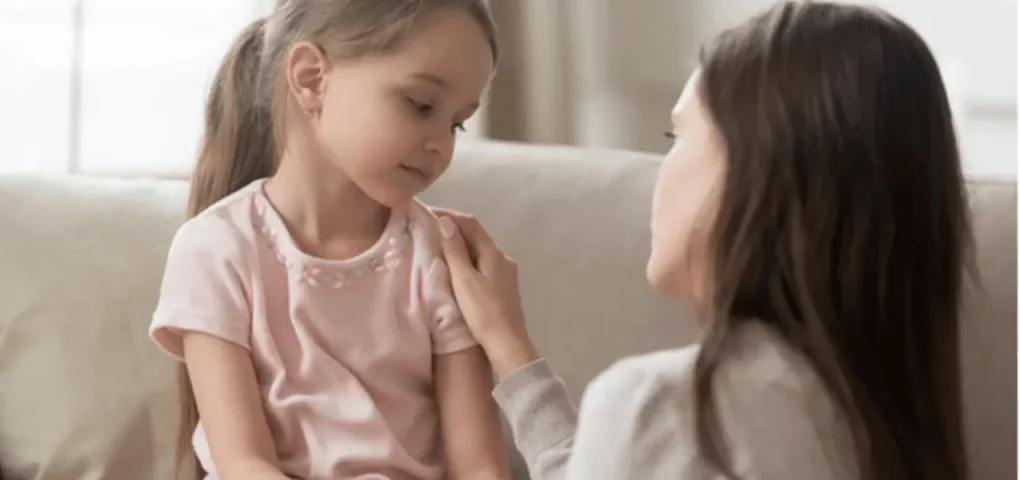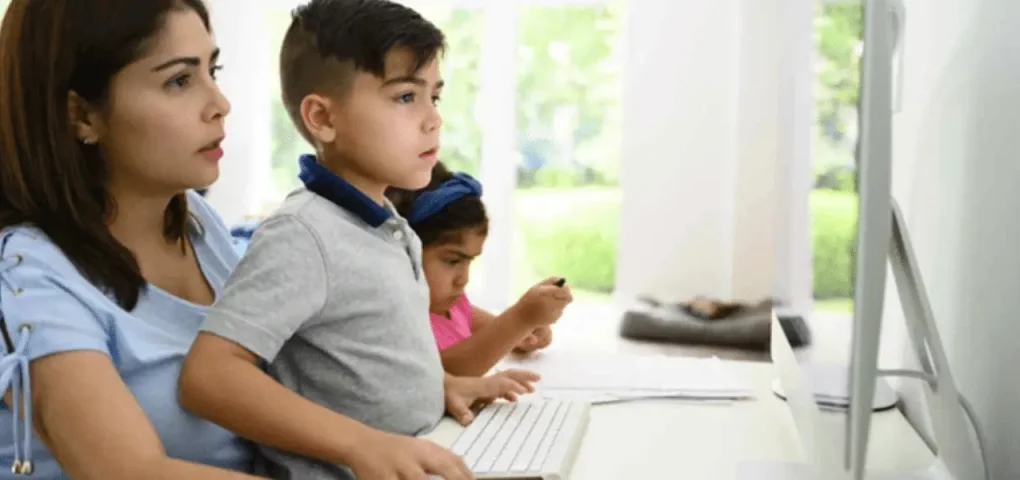
Does your child have anxiety issues? Sometimes, it can be hard to tell. In this article, we’ll talk about the 6 signs your child has anxiety issues and what you can do to help your child deal with it.
Studies show that roughly 1 out of 5 kids are dealing with a psychiatric disorder. Half of them had to deal with some form of psychiatric illness such as anxiety disorder even before reaching the age of 14.
While those numbers are certainly troubling, especially for parents, you probably find yourself wondering whether your child is going through anything similar. The truth is most children experiencing anxiety disorder go undiagnosed simply because they may not be showing the usual symptoms.
As a parent, how can you tell if your child is dealing with an anxiety disorder that requires treatment from a pediatrician or mental health professional?
Thankfully, there are ways for you to tell whether your child has anxiety issues, and in this post, we’ll discuss 6 signs that can help you do so.
Disclaimer: Any information written in this article is for educational purposes only. It does not serve as a substitute for professional medical advice and should not be regarded as such. If your child is manifesting symptoms of anxiety disorder, it is best to bring this to the attention of a psychologist promptly.
Symptoms of Anxiety Disorders
Anxiety disorders can cause both physical and emotional symptoms, which is the body’s normal response to social situations requiring a fight or flight response.
Physical symptoms include racing heart, rapid or difficulty in breathing, muscle aches (especially stomach and headaches), shaking, dizziness, tingling, sweating, or fatigue. Emotional symptoms include stress, extreme fear, and ongoing worries or negative thoughts about friends, school, or activities.
Childhood anxiety disorders are divided into several types, including generalized, separation, social, and specific phobias, according to the Anxiety and Depression Association of America.
Types of anxiety disorders and related conditions
- Generalized anxiety disorder (GAD)
- Obsessive-compulsive disorder (OCD)
- Panic disorder
- Specific phobia
- Selective mutism (SM)
- Separation anxiety disorder
- Social anxiety disorder (SAD)
Most of the time, parents simply dismiss these signs of anxiety in children as a “phase” that will go away in time. In some cases, the symptoms are disguised as a simple tummy ache, making it even more difficult for children to get diagnosis and treatment.
Parents and their response towards their kids can also contribute to their child’s anxiety without realizing it. For example, allowing children to miss school when they worry about going, can likely make them feel more worried the next school day.
#1 They always seek reassurance and approval

It’s one thing for kids to seek recognition for their accomplishments. Still, it’s a different matter altogether when your child constantly needs praise and approval for everything they do. Such a desire for constant reassurance is a sign of something more serious.
This behavior usually springs from anxious thoughts of not meeting other people’s expectations. It is most commonly related to academic and extracurricular performance as well. Things that happen in a child’s life can be stressful and challenging to cope with. Loss, serious illness, death of a loved one, violence, or abuse can lead to anxiety in children.
For example, anxious children may feel more stressed out than usual about an upcoming examination. Or they may feel more than a little high-strung before a game they’re about to participate in, convinced that they’d end up messing things up in the end. These feelings of anxiety affect them, pushing them to seek reassurance from their parents or family.
If this is happening to your kid more often than usual, then it could be a sign that your child is dealing with anxiety disorders.
#2 They tend to be rigid and seek absolute control

It’s pretty normal for humans to crave a semblance of order in our lives. There is, after all, a sense of security in predictability. But those dealing with anxiety disorders may go overboard as they seek absolute control over their lives.
This excessive desire for control can manifest itself in little things, such as children getting obsessed over how their toys are arranged; or throwing a fit when their routine is disrupted. It might seem like they just really love order and routine, but only at the extreme level.
And they say, too much of anything is never a good thing. So if your kid is showing some signs of obsession over the minor aspects of their lives, then it’s time to take a closer look at what they’re actually going through.
#3 They show perfectionist tendencies

Is your kid obsessed over getting things done perfectly? Are they willing to do things repeatedly until they get them done without a single mistake? To these kids, being “great” is never enough. Things have to be “excellent” every single time.
And when they think things don’t turn out the way they want to, they end up beating themselves up mentally. In some cases, the disappointment can be so crushing that they end up hurting themselves physically.
Of course, we don’t want to wait until that happens before we arrange for them to receive all the help they need. The earlier you spot the symptoms of anxiety disorders in your child, the better you’ll be able to help their coping skills to overcome it.
#4 They're too preoccupied with bad news

Now this one may sound queer to you. And that’s understandable because kids typically aren’t interested in such serious matters as disasters and wars. That’s usually something for the adults to talk about, not for children.
Some children develop anxiety after experiencing stressful events, such as: frequently moving house or school, parents fighting or arguing, family death, becoming seriously ill or getting injured in an accident, school-related issues like exams or bullying, being abused or neglected.
If your child is showing unusual interest in such kinds of news reports, something may be off. Experts say that this unusual obsession can be linked to a previous traumatic experience, leaving them in fear of experiencing another trauma.
#5 Frequent tantrums and sudden changes in behavior

If your kid has been acting odd lately, or if they’re suddenly throwing tantrums more often than usual, then you might want to look into the reason behind this behavioral change.
Some kids dealing with anxiety disorders may try to put up a brave front in front of others, especially at school. But all this pretense can take a toll on their feelings, resulting in emotional breakdowns at home.
Young kids also feel anxious the first time they are apart from their parents. After a while, they get comfortable being with a grandparent, babysitter, or teacher in daycare or school. But when kids don’t outgrow the fear of being apart from a parent, it’s called separation anxiety disorder.
Suppose a child suffers two or more panic attacks (episodes where they are frightened or worried when no real danger is present) and spends the next month or more worrying over having another one or losing control. In that case, they may have a panic disorder.
Anxiety may present as fear or worry, but can also make children irritable and angry.
If this is the case with your child, you might want to think of a way to get them to relax a bit and see whether that makes things better.
#6 They show signs of hyperactivity
Another sign you may want to look out for is high activity level. Research also shows anxiety in children leads them to exhibit a tendency to engage in a high level of activity to ward off anxious thoughts and fears.
While this symptom is rare among children who have anxiety disorders, it’s still not one you should overlook. If your child shows an increased level of activity, especially prior to stressful situations, then it may be a telltale sign that they’re battling anxiety symptoms.
How you can help your child
If your child exhibits any of the most common symptoms we’ve discussed above, what can you do to help treat anxiety?
Be present for your children.
Set aside time to talk to them about their worries and listen attentively to what they have to say. Often, our kids just need to know that someone is looking out for them, and that’s us.
Your child may express something that doesn’t sit well with adults during such conversations. Try not to lash out at them for expressing their thoughts. Instead, strive to acknowledge their ideas and then help them calm down.
Reassure them of your support.
Emotional support can go a long way in helping children with anxiety issues deal with their anxious thoughts. Involving other family members can also help and develop their coping skills.
You can also teach them ways, perhaps breathing techniques, so they can calm themselves down when they’re feeling anxious.
Seek professional help.
While articles like this can help you be aware of your child’s issues, this cannot be a substitute for professional advice. Promptly seek the assistance of a mental health professional, so your child won’t be left undiagnosed.
As a parent, you can talk therapy or treatment options with their doctor. Children diagnosed with an anxiety disorder must receive the help and treatment they need.
———–
Enjoyed this article? Share it with the other mommas out there too! And don’t forget to check out our other posts on the blog.


Leave a Reply